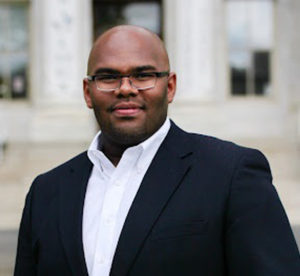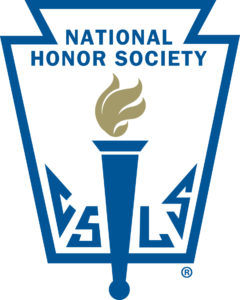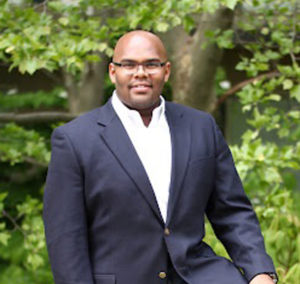 Late in 2015, I was approached with an opportunity to conduct an interview with Hill Harper regarding his collaboration with the National Honor Society and its “Honor Your Future Now” campaign. I was subsequently given the opportunity to interview the director of the National Honor Society Dr. Jonathan Mathis. The following is my follow up interview with Dr. Mathis.
Late in 2015, I was approached with an opportunity to conduct an interview with Hill Harper regarding his collaboration with the National Honor Society and its “Honor Your Future Now” campaign. I was subsequently given the opportunity to interview the director of the National Honor Society Dr. Jonathan Mathis. The following is my follow up interview with Dr. Mathis.
* * *
An interview was recently granted with Hill Harper to discuss the National Honor Society’s Honor Your Future Now Campaign, an effort to get young people, particularly those planning to go off to college, to think about their next steps. A second interview was granted this time with the director of the National Honor Society, Dr. Jonathan Mathis. In this interview Dr. Mathis, who has had a love for education his entire life, as well as helping students actualize their dreams, discusses the importance of families proactively planning for their student’s college education; particularly the all-important financial aspect. He also discusses resources that the National Honor Society has made available to plan for college, not just for its members, but to all students.
Anwar Dunbar: Hello Jonathan. First, thank you for this opportunity to interview you and ask you some more questions about Honor Your Future Now. As you know, I recently spoke with Hill Harper about the campaign. As the Director of the National Honor Society, what can you tell the audience about your organization and the campaign?
Jonathan Mathis: I can start by giving a few words about Honor Your Future Now. The National Honor Society and the National Association of Secondary School Principals are really excited about this particular campaign because the narrative is to encourage all students to envision their future selves, and to look at how we can help prepare middle and high school students to start thinking about college, their careers and a lifetime of success. So for me this campaign is really important and special because we offer expert advice, programs and resources not only to our Honor Society members, but to a general, wider public audience that will focus on helping students to get to, and through college, including how they will pay for college.
AD: Just for a little bit of context here, I want to go back and ask you a basic question. First I’m going to front it though, by saying that when I was in high school I wasn’t the most focused student academically, and I do remember having a National Honor Society Chapter at my high school (Hutch-Tech High School in Buffalo, NY). For the readers, can you just briefly tell what the National Honor Society is as an organization? Do you all have chapters at every high school? What was it set up to do?
JM: Sure. For nearly 100 years the National Honor Society and the National Junior Honor Society have empowered students to excel at four key pillars: scholarship, service, leadership and character, with a fifth pillar at the middle school level – citizenship. The National Honor Societies thus recognize and foster one million students each year to be engaged in their schools, to be empowered to lead change, and to be active in their communities, so when we look at Honor Your Future Now we’re not only talking to our Honor Society members, but to the broader public. Let’s continue to plan for our future success now. Let’s cultivate ourselves with experiences and resources that will celebrate who we envision ourselves to be. There are 25,000 chapters active at the Honor Society and the Junior Honor Society level, at both the high school and middle school levels.
AD: And just for the lay person, what are the requirements for joining? Do you have to have a 4.0 grade point average (gpa), for example?
JM: The national guideline is for students to have at least a 3.0 minimum gpa, and again to celebrate students within their school who have demonstrated scholarship, leadership, service and character. At the middle level citizenship is important too. We expect to see students inducted into the National Honor Society who are seen as leaders in their school community, and also in their external community.
AD: Okay let’s circle back and focus on Honor Your Future Now. What was the impetus for this campaign? Why did the National Honor Society feel the need to start this? It sounds like there’s a component to help students navigate college and it sounds like there’s a financial component as well. Is there a need to help students navigate college? Are there skills or values that have been lost?
JM: You know, you bring up a great question. There’s been some new research that we commissioned here at the National Honor Society that led us to find that 50% of college-seeking students worry that they’ll be unable to pay for their college education, so when you hear that statistic alone we start to wonder; How can we dismantle the myths? How do we provide additional resources? We also found that 40% of the students said that they still need help trying to figure out how to apply for scholarships and 33% of students said that they would need more information just about the process. Based on that research we developed the additional programming and resources that begin to share this pertinent information, especially at this time of year when most college-seeking students are finding out whether or not they’ve been accepted to their school of choice, and how they may be able to finance their education.
So, for example, we know that Jan. 1 is the opening of the Free Application for Federal Student Aid (FAFSA), and we encourage students to complete that application and submit their FAFSA as soon as possible because the professionals in the field know that those federal dollars are packaged on a first come first serve basis. So if we want to help students to address these gaps in information and their concerns about financing their education, we really want to engage families and students as early as possible. Therefore, providing that expert advice and information can help alleviate many of those concerns.
AD: Is the Honor Your Future Now Campaign focused for the most part on the financial component or were there other points that you all wanted to address?
 JM: Well, just one other piece about the financial component. On our Honor Your Future Now website, we talk about what students need to think about in terms of being a leader in their school and a successful student. But as we think about this time of year, the conversation in schools across the country is how do you prepare to enroll in college, so we provide timelines for the various academic years and, as we think about college, we offer information in three ways. We ask students and families to think about their own resources first. Second, we’re encouraging them to get financial aid by completing the Free Application for Federal Student Aid (FAFSA) and things of that nature. Third, we ask students to consider ways to decrease costs.
JM: Well, just one other piece about the financial component. On our Honor Your Future Now website, we talk about what students need to think about in terms of being a leader in their school and a successful student. But as we think about this time of year, the conversation in schools across the country is how do you prepare to enroll in college, so we provide timelines for the various academic years and, as we think about college, we offer information in three ways. We ask students and families to think about their own resources first. Second, we’re encouraging them to get financial aid by completing the Free Application for Federal Student Aid (FAFSA) and things of that nature. Third, we ask students to consider ways to decrease costs.
So when we say consider your own resources, we help provide information around savings accounts and 529 college savings plans and, for our National Junior Honor Society members, the National Honor Society has introduced an outstanding achievement award that could provide students with a savings account. When we talk about financial aid we’re really getting students to understand the: need-based aid and the merit-based aid, and how to go about completing the FAFSA and to secure the grants, the loans and the federal work study, and the merit based aid.
When we’re talking about reducing college costs, we’re really talking about that pillar of scholarship, to say consider taking the advanced placement and the dual enrollment paths to limit the amount of time and money needed to complete the degree. Right now we’re highlighting those things because of the time of year, but the Honor Your Future Now Campaign is really talking about a lifetime of success. How can I become a leader in my community? In what ways can I give back? In what ways can I serve? And given the timeliness of the conversation, we’re really excited about the opportunities and the resources that we’re providing about getting to and through college.
AD: You know, I just read something about that in a book called Smart is the New Rich by Christina Romans. She recommended going through an accelerated program so students could finish early, thereby cutting the costs. Is that what you were referring to?
JM: Right. Schools may offer a dual enrollment program. So typically, you’re completing your high school diploma concurrent to your entry level college courses. You may hear of it described as dual enrollment, early enrollment and concurrent enrollment, or early college-high school where you could potentially earn an associate’s degree before you graduate from high school.
AD: Okay. Does that sum up the message you wanted get out to the masses?
JM: Yes, and it goes to your previous question about what other resources this campaign offers. We really just encourage students and parents to plan early, think about the potential of a lifetime of success and what we can do now to really bring to light our future selves. So when you visit the website, of course you’re going to find great information about how to charter a chapter if the school doesn’t have one; we also want to be sure that we’re equipping students to dream big and giving them the resources to make those dreams a reality.
AD: Jonathan, I’m going to ask you one more question. I asked Hill this, but as someone who has been as involved with education as you have been, and now overseeing the National Honor Society, in terms of getting today’s students to be successful, i.e. the Millennials, do you think they face any unique academic challenges? Are there things that are different from when we were coming up in the 80s and the 90s?
JM: You know, I think there is a mix of challenge and opportunity. When we think about the access to technology and the access to resources such as this website, that might not have existed for us. I remember when I was looking for scholarships, I was sitting at the public library on snow days or professional development days for teachers. If I had that day off, I would go look for scholarships. Now for example, for our National Honor Society members, we just developed a search tool where they can have access to thousands of scholarships that they can apply to based on the pillars. Those things didn’t exist for us. So there’s a great deal of accessibility, but the question becomes now, how do we ensure that students who have access to a great amount of information are able to really decipher it in terms of what they need to do to execute those plans, and to achieve those goals, and how do they put it into action? And when we look at the wide numbers of students to counselors in schools, we want to begin to help students make sense of the information they have access to.
AD: Do you have any closing words?
JM: I just want to encourage families and students to take advantage of the Honor Your Future Now campaign and to truly begin to plan for their future success now, and to take advantage of the resources. So continue to ask the questions and seek help to make it all possible.
AD: Well thank you, Jonathan, for this wonderful opportunity to get this extremely important message out.
JM: Thank you, Anwar. I really appreciate your time this afternoon.
AD: I have one last question concerning your background. Being director the National Honor Society is a very impressive accomplishment with a far reaching impact. Were you an educator who slowly worked your way up? Or did you just happen to drop into this capacity by chance?
 JM: You know, to make a long story short, I always used to play school as kid so I’ve always loved what school looked like. Professionally, I began my career working in college admissions, and then I served in a post-secondary institution, and then in a secondary school. I served as the director of college counseling for a charter school, and I also served as an admissions counselor and a multicultural recruiter. I spent a lot of time doing induction programs for new students. I completed a Ph.D. in Urban Education Policy with a focus on this conversation we’re having around access and success for students, so my career has been and will continue to be around getting students to and through college. It’s what I’m most passionate about, and you know, playing school as a kid and growing up on colleges campuses, I know few other places as well as I know colleges and high schools, so it’s truly a pleasure to serve in this capacity. But it’s been my career and it will continue to be; helping students actualize their dreams.
JM: You know, to make a long story short, I always used to play school as kid so I’ve always loved what school looked like. Professionally, I began my career working in college admissions, and then I served in a post-secondary institution, and then in a secondary school. I served as the director of college counseling for a charter school, and I also served as an admissions counselor and a multicultural recruiter. I spent a lot of time doing induction programs for new students. I completed a Ph.D. in Urban Education Policy with a focus on this conversation we’re having around access and success for students, so my career has been and will continue to be around getting students to and through college. It’s what I’m most passionate about, and you know, playing school as a kid and growing up on colleges campuses, I know few other places as well as I know colleges and high schools, so it’s truly a pleasure to serve in this capacity. But it’s been my career and it will continue to be; helping students actualize their dreams.
To learn more about the resources for college planning discussed by Dr. Jonathan Mathis in this interview Honor Your Future Now. Also see the National Honor Society’s infographic which describes the three components of paying for college.
To learn more about the resources for college planning discussed by Dr. Jonathan Mathis in this interview, visit Honor Your Future Now, and the infographic for the steps to applying to college.
If you enjoyed this interview, please share it, and leave any thoughts and comments below. If you’d like to receive my most up to date content as it gets published, please subscribe.
